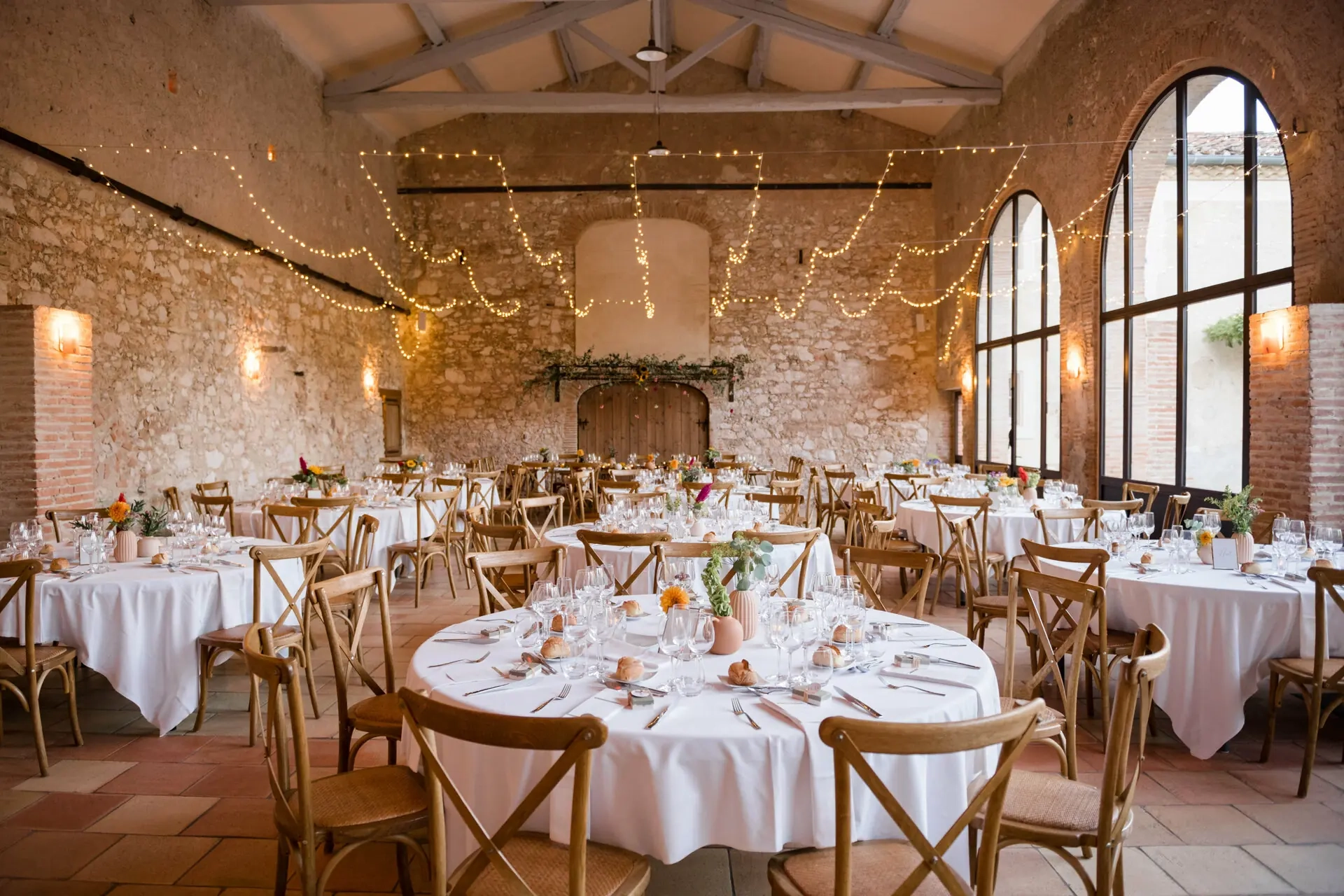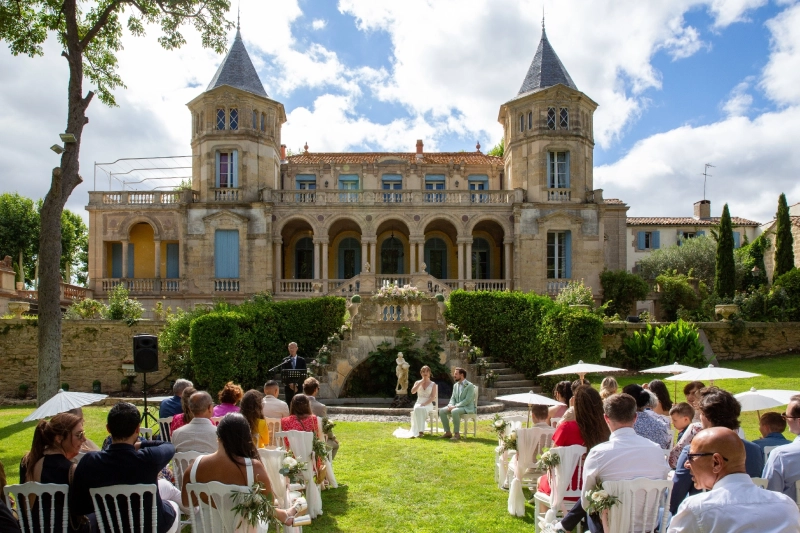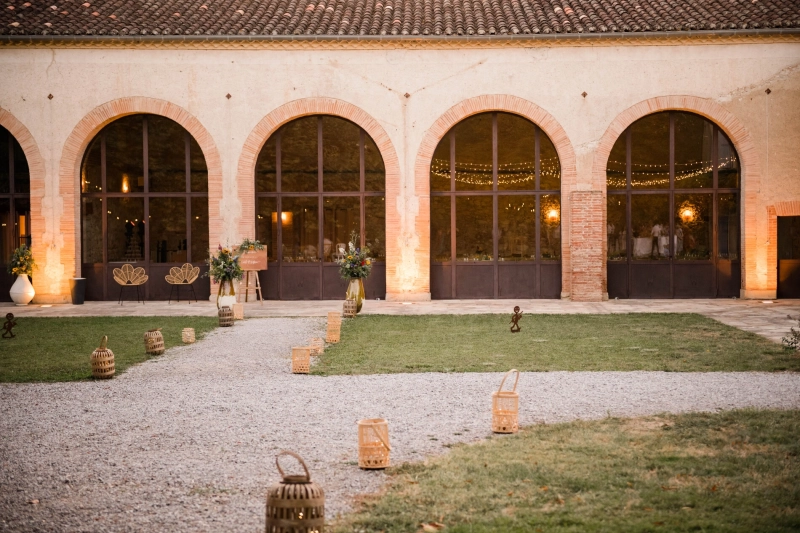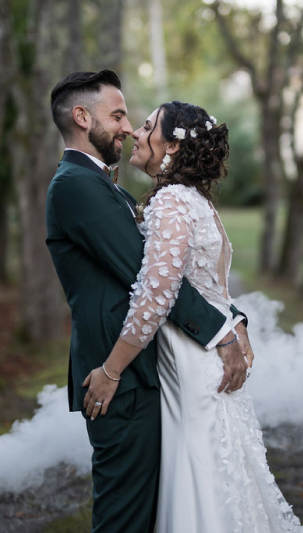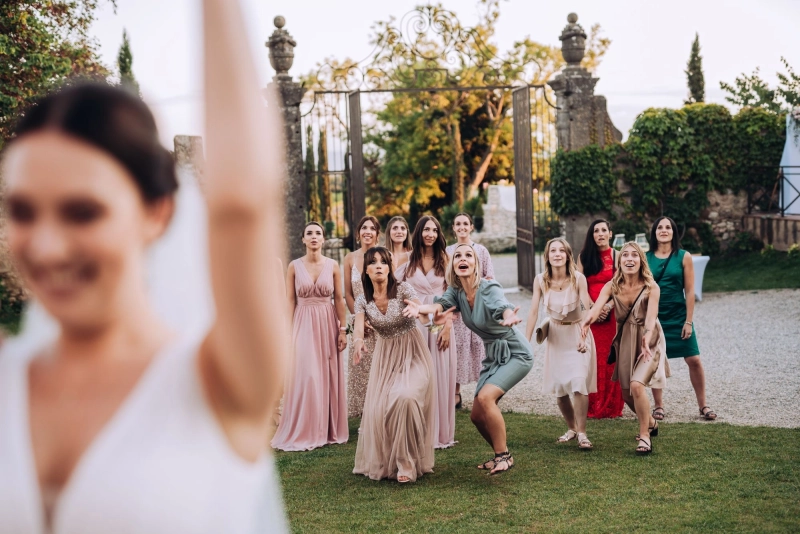 Partial organization
Partial organizationYour wedding planner for your wedding near Toulouse
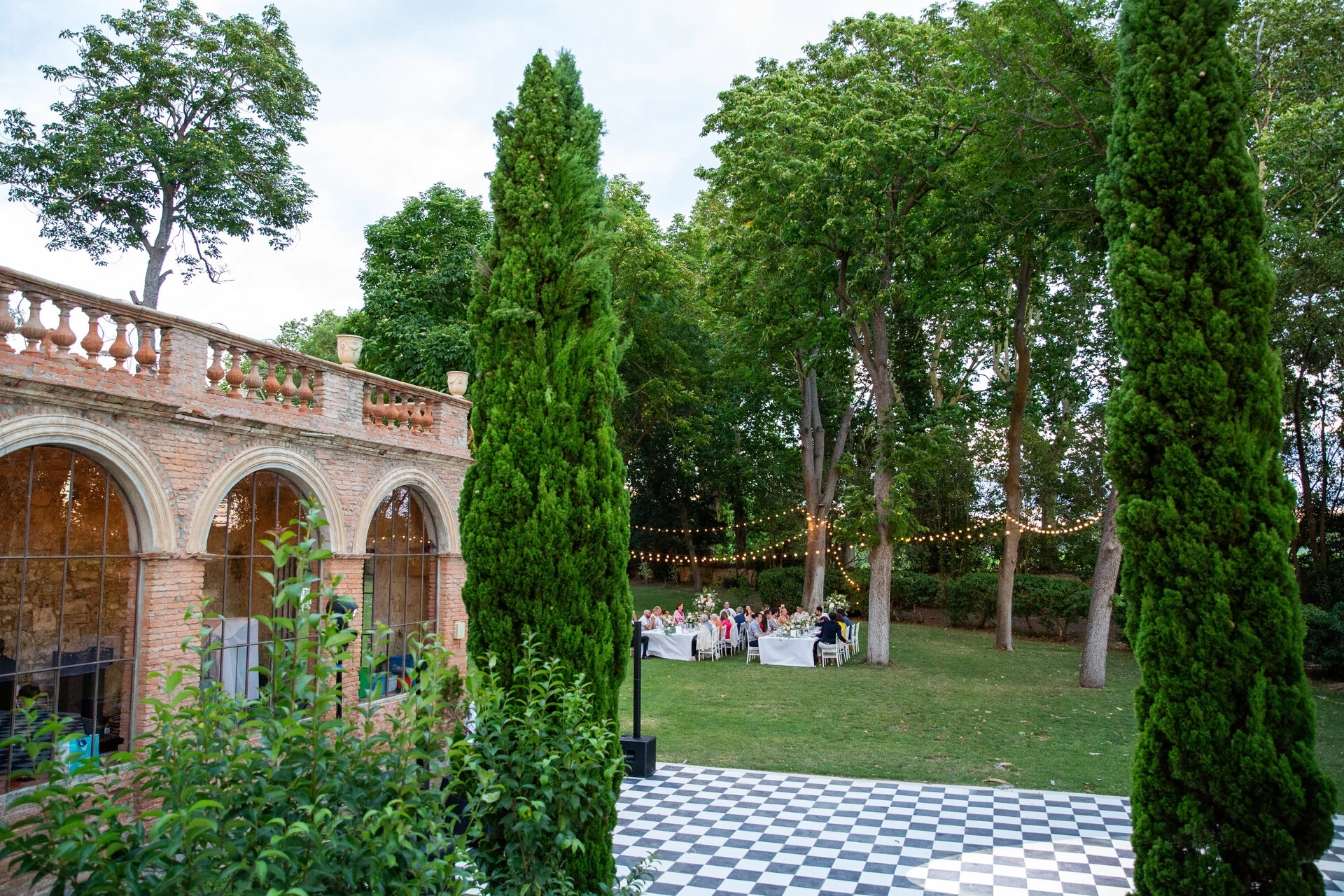
 Alice & Nicolas's weddingCredits Photos Céline Brochado
Alice & Nicolas's weddingCredits Photos Céline Brochado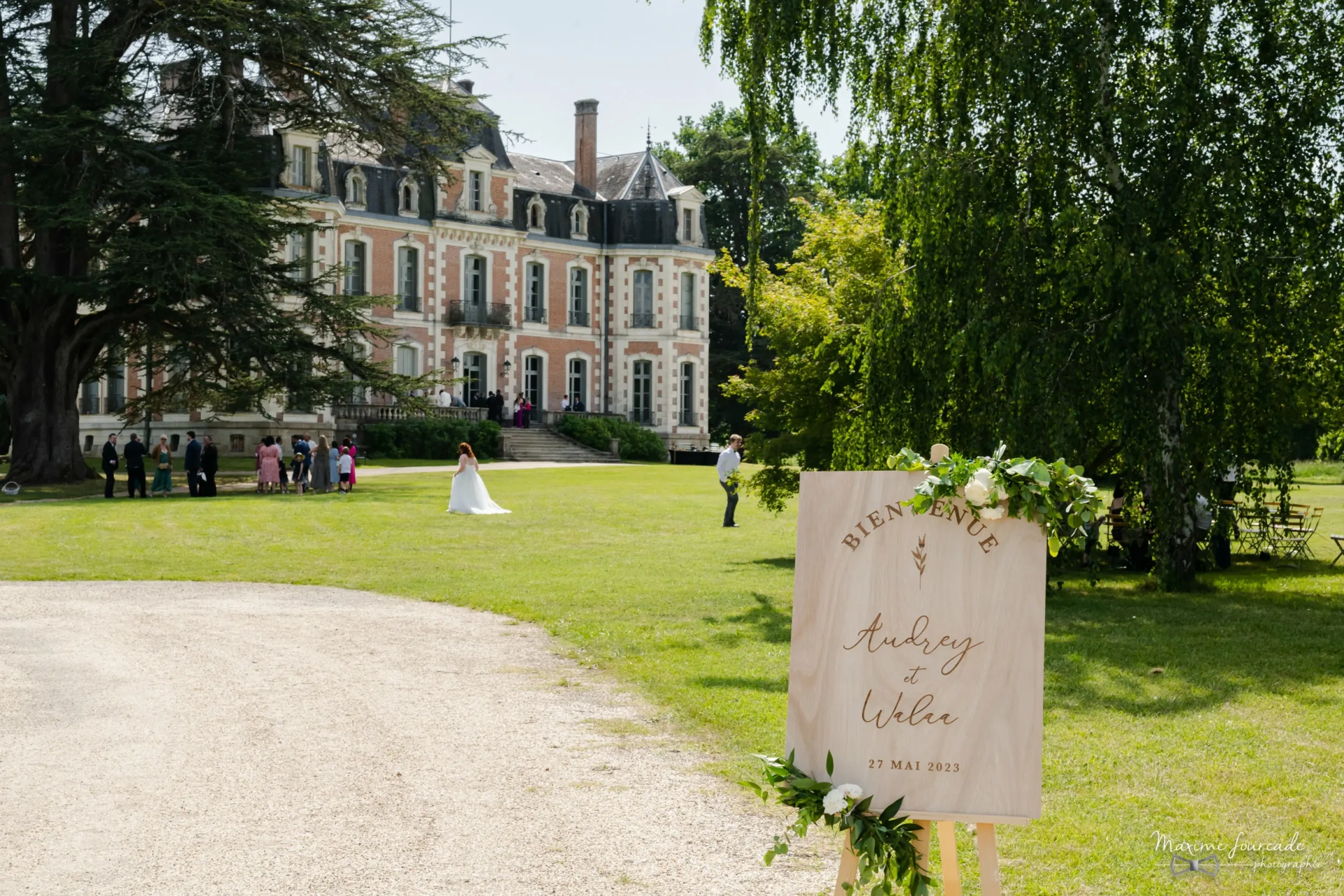 Audrey & Walaa's weddingCredits Photos Maxime Fourcade
Audrey & Walaa's weddingCredits Photos Maxime Fourcade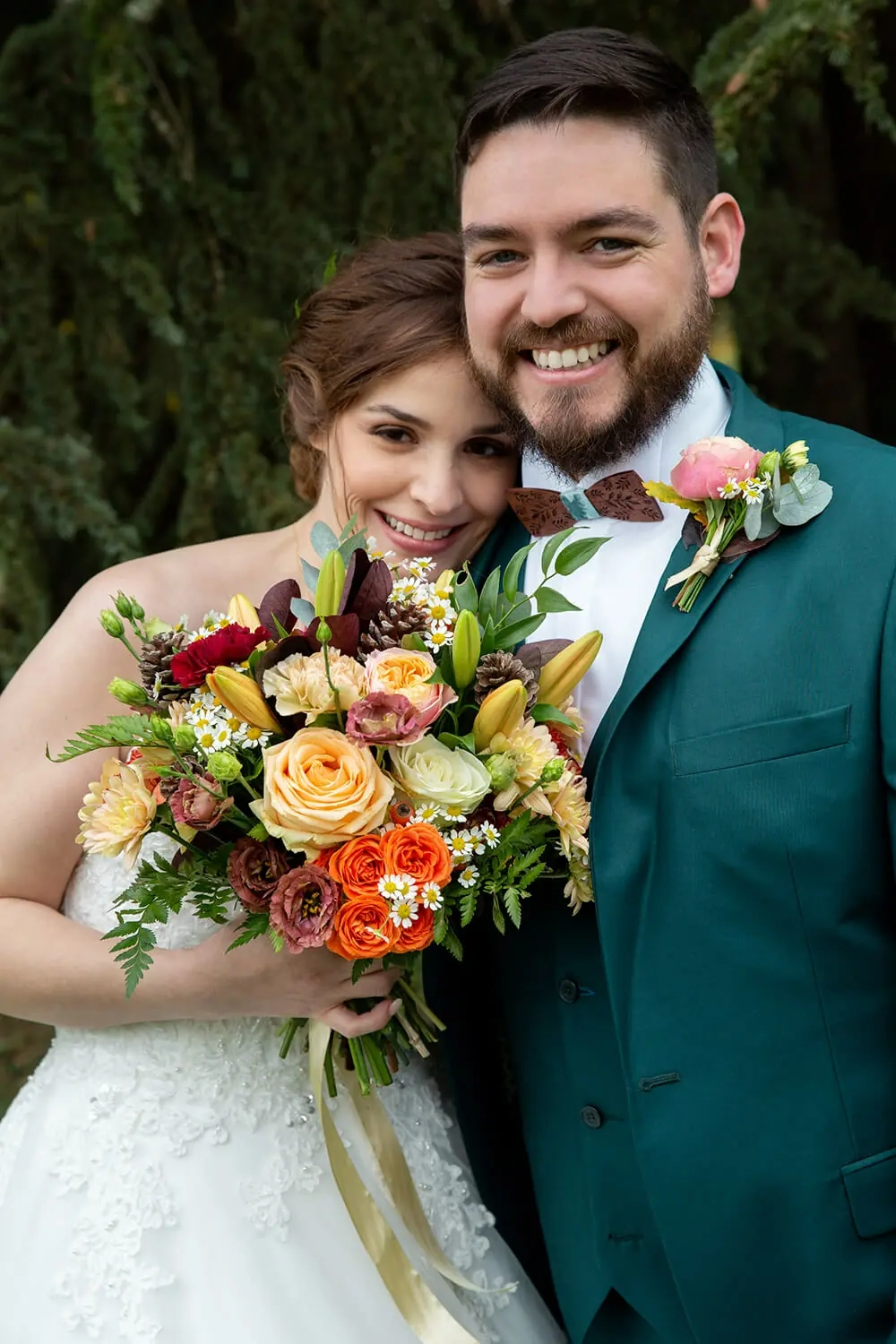 Aurélie & Louis-Marc's weddingCredits Photos Cynthia Cappe
Aurélie & Louis-Marc's weddingCredits Photos Cynthia Cappe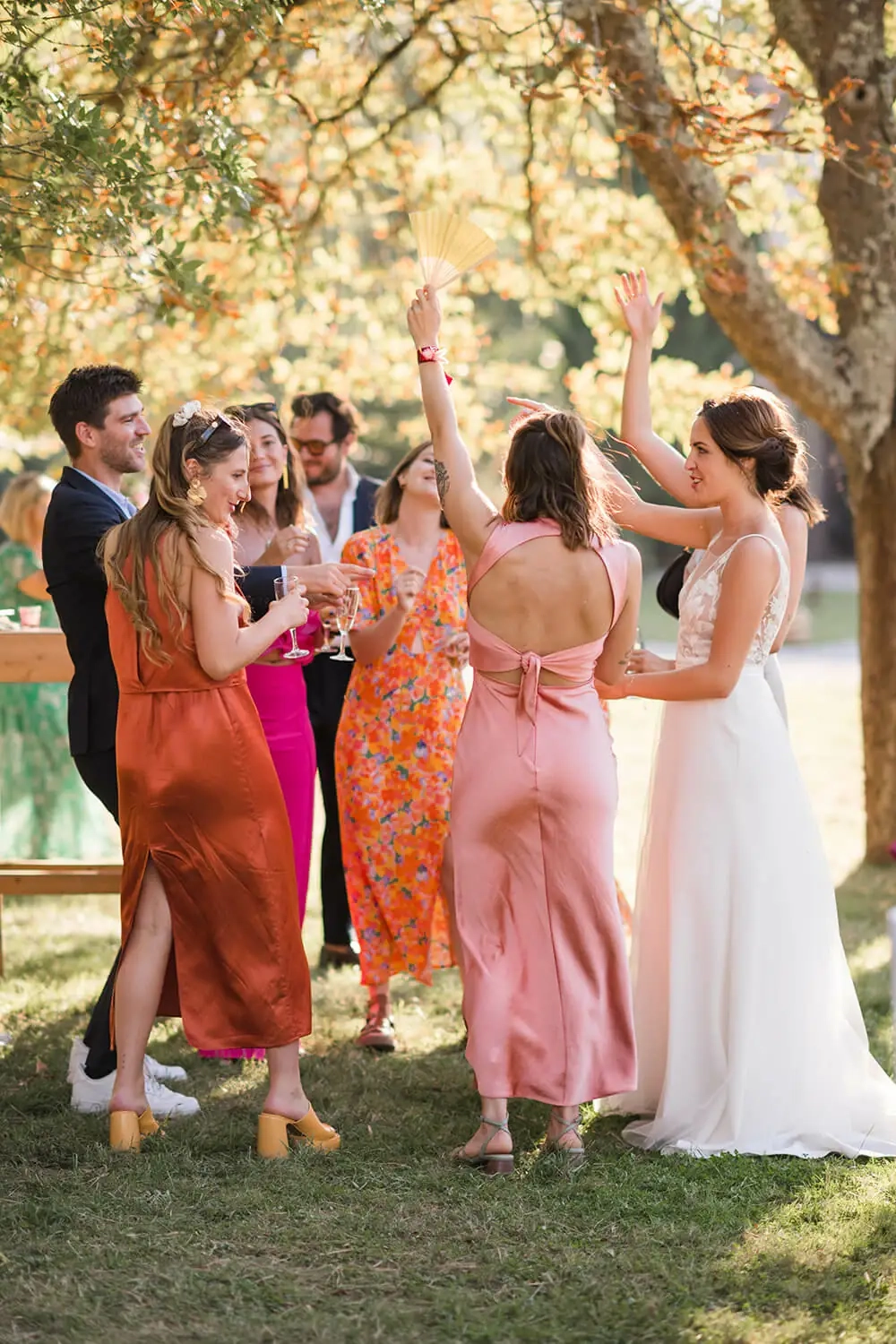 Cécile & Adrien's WeddingCredits Photos Johanna Sarniguet
Cécile & Adrien's WeddingCredits Photos Johanna Sarniguet Cécile & Nicolas's weddingCredits Photos Céline Brochado
Cécile & Nicolas's weddingCredits Photos Céline Brochado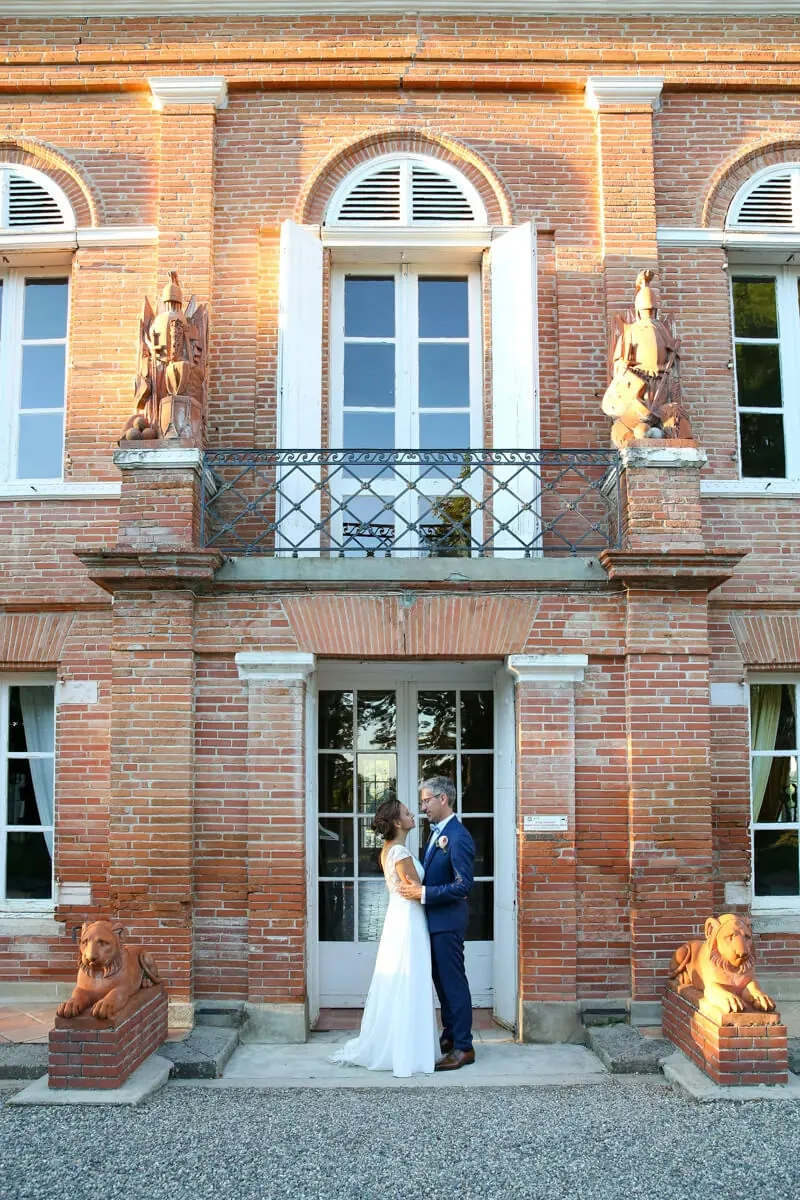 Claire & Guillaume's weddingCredits Photos Cynthia Cappe
Claire & Guillaume's weddingCredits Photos Cynthia Cappe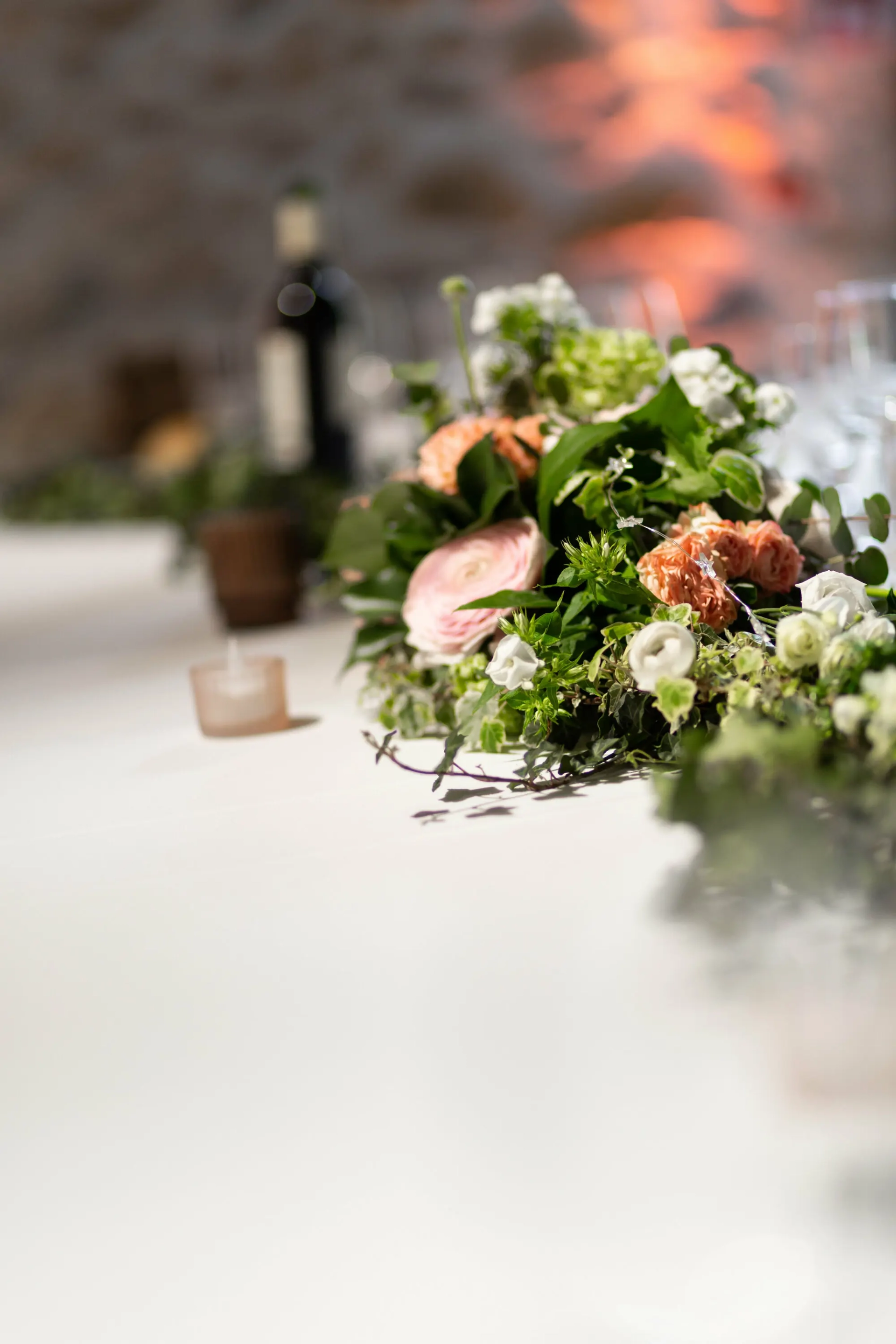 Kate & Stephen's WeddingCredits Photos Julie Chapolard
Kate & Stephen's WeddingCredits Photos Julie Chapolard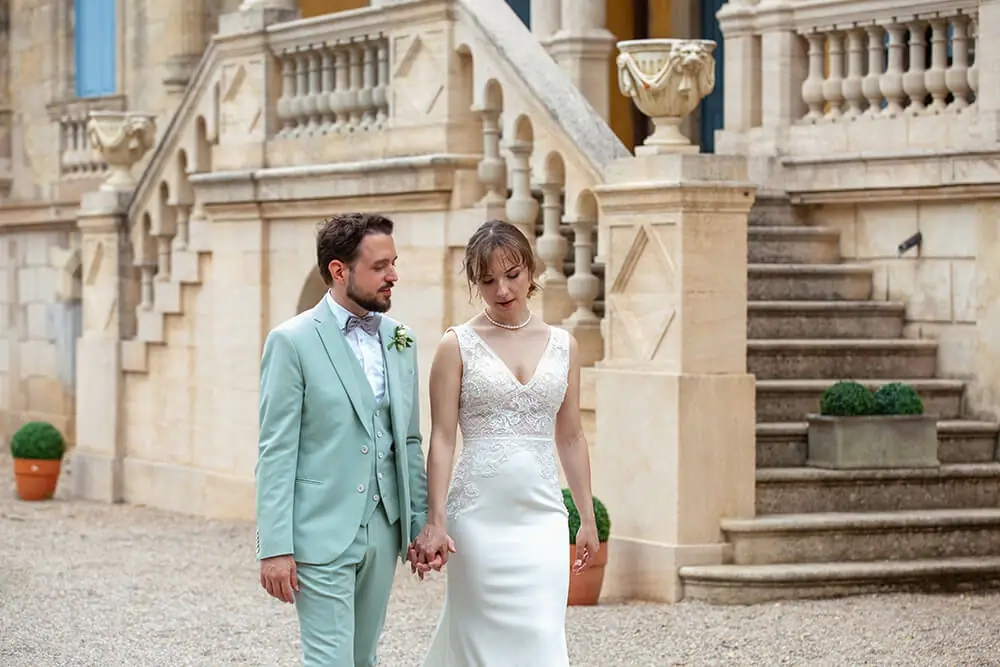 Lisbeth & Charley's WeddingCredits Photos Cynthia Cappe
Lisbeth & Charley's WeddingCredits Photos Cynthia Cappe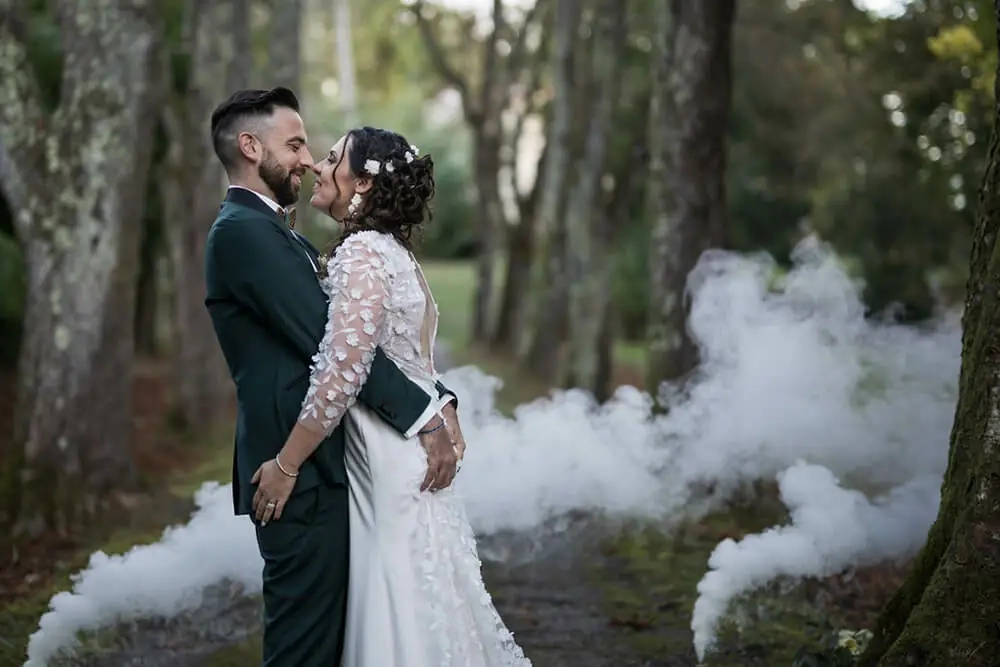 Morgane & Geoffrey's weddingCredits Photos Franck Petit
Morgane & Geoffrey's weddingCredits Photos Franck PetitFAQ
A wedding planner is a professional specialized in planning, organizing, and managing weddings. Their role is to guide couples through every step of the wedding preparation process, ensuring that the event runs smoothly while respecting their desires and budget.
Key Responsibilities of a Wedding Planner:
- Initial Consultation: Understanding the couple’s expectations, preferences, and budget.
- Planning and Design: Creating a cohesive wedding concept, selecting a theme, colors, and decor style.
- Vendor Research and Selection: Booking venues, caterers, photographers, videographers, musicians, florists, and more.
- Budget Management: Establishing a detailed budget and ensuring expenses stay within limits.
- Vendor Coordination: Ensuring all service providers work together seamlessly according to the established plan.
- Logistics Management: Handling practical details such as transportation, guest accommodations, and the wedding day schedule.
- Problem Solving: Managing any unexpected issues before or during the wedding.
- Emotional Support: Providing reassurance and guidance to the couple throughout the planning process.
In addition to these tasks, a wedding planner may offer extra services such as honeymoon planning, managing invitations and RSVPs, or coordinating post-wedding events like a brunch the next day.
The primary goal of a wedding planner is to relieve the couple of the stress and challenges of wedding organization, allowing them to fully enjoy their special day. This profession requires excellent organizational skills, the ability to manage stress, strong communication and negotiation abilities, and creativity to design unique and personalized weddings.
The cost of a wedding planner can vary significantly depending on several factors, including location, the planner’s experience, the range of services provided, and the size or type of wedding. Here’s a breakdown to help you understand how wedding planning services are priced:
Types of Services & Pricing:
- One-time consultation: Some wedding planners offer hourly consultations to help with initial planning or final details. These sessions can range from a few dozen to several hundred dollars.
- Day-of coordination: For couples who have planned their wedding but need a professional to oversee the event on the big day, prices typically range from $500 to $2,000+, depending on the complexity of the wedding.
- Partial planning: This service may include selecting specific vendors or assisting a few months before the wedding. Prices generally range from $2,000 to $5,000.
- Full-service planning: From concept to execution, a complete wedding planning service can cost between $3,000 and $10,000+, depending on the couple’s specific needs.
Pricing Models :
- Percentage-Based Fee: Some wedding planners charge a percentage of the total wedding budget, usually between 10% and 20%. This is common for full-service planning and ensures that the planner’s fee scales with the wedding’s scope.
- Flat Fee: Many planners offer a predetermined package price that covers all agreed-upon services. This provides cost predictability for wedding budgets.
Factors That Influence Pricing :
- Location: Prices tend to be higher in major cities or popular wedding destinations.
- Planner’s Experience: Highly sought-after professionals or those with extensive experience may charge premium rates.
- Seasonal Demand: Prices may fluctuate based on peak wedding seasons, with higher costs during high-demand months.
- Customization: The more unique and personalized the wedding, the higher the potential costs.
Final Considerations
It’s essential to discuss pricing details with your wedding planner to understand exactly what is included in their services and how it aligns with your budget. Requesting quotes from multiple professionals can also help you find the best value for your needs.
A wedding planner is a professional who assists couples in planning, organizing, and coordinating their wedding, from the initial concept to the big day. Their role is to ensure that the event runs smoothly, stays within budget, and meets the couple’s expectations and dreams. Here are the main tasks and responsibilities associated with this profession:
1. Initial Consultation :
- Meet with clients to understand their vision, needs, and budget.
- Develop a planning timeline and checklist.
2. Planning and Design :
- Propose themes, decoration ideas, and personalized wedding concepts.
- Select suitable venues for the ceremony and reception based on style and budget.
- Help choose vendors (caterers, photographers, musicians, florists, etc.) and negotiate contracts on behalf of the clients.
3. Budget Management :
- Create and manage a detailed budget to ensure expenses remain within limits.
- Advise couples on how to allocate their budget effectively.
4. Coordination and Logistics :
- Establish a wedding day timeline and communicate it to all vendors.
- Oversee the flow of events, from the ceremony to the cocktail hour, dinner, and entertainment.
5. Problem Solving :
- Anticipate and resolve any issues before or during the wedding.
- Serve as the main point of contact for all event-related concerns.
6. Wedding Day Execution :
Supervise the entire event, from setup to breakdown, ensuring everything runs according to plan.
Coordinate vendors, manage schedules, and ensure the satisfaction of both the couple and guests.
7. Post-Wedding Tasks :
- Ensure all payments are completed.
- Sometimes assist with rental returns or lost-and-found management.
Key Skills and Qualities Required :
- Organizational skills & attention to detail – to manage multiple aspects of the event simultaneously.
- Interpersonal skills – to effectively communicate with clients and vendors.
- Creativity – to design unique and memorable weddings.
- Stress management – to remain calm under pressure and handle unexpected challenges.
- Negotiation skills – to secure the best deals and terms from suppliers.
Final Thoughts
Being a wedding planner is both demanding and rewarding, offering the opportunity to turn couples’ dreams into reality while navigating the logistical and emotional challenges of wedding planning.
Becoming a wedding planner involves a mix of education, hands-on experience, and entrepreneurial skills. Here’s a general guide on how to start a career in wedding planning:
1. Education and Training
- There are no strict educational requirements, but courses in event planning, business management, marketing, or design can be highly beneficial.
- Some aspiring wedding planners choose to complete specialized training programs offered by private schools or professional organizations. These courses cover event coordination, client management, budgeting, and more.
2. Gaining Practical Experience
- Hands-on experience is crucial. Start by assisting an established wedding planner, working in an event planning company, or organizing weddings for friends and family at low cost to build your portfolio.
- Attending wedding fairs and industry events can provide networking opportunities and valuable insights into the business.
3. Developing Key Skills and Qualities
- Strong communication, negotiation, and problem-solving skills are essential since wedding planners often mediate between vendors and couples.
- Creativity, organization, and attention to detail are also critical to executing flawless weddings.
4. Starting and Managing Your Business
- Many wedding planners work as independent entrepreneurs, so understanding business essentials like marketing, accounting, and client relations is key.
- Creating a professional website and leveraging social media can help attract potential clients.
5. Obtaining Professional Certification
While not mandatory, getting a wedding planning certification can boost credibility. Various professional organizations offer certifications after training and exams.
6. Networking and Continuous Learning
- Building a network of vendors and event professionals can open doors to business opportunities.
- Attending workshops, conferences, and industry training helps stay up-to-date with wedding trends and best practices.
Conclusion
Becoming a wedding planner requires a mix of formal or self-directed learning, practical experience, business management skills, and strong interpersonal abilities. Most importantly, a passion for event planning and a commitment to making couples' dream weddings a reality are essential for success in this industry.


